Governance has been an increasingly important topic both in research and policy since the early 2000s, reinforced by the rise of challenges that are brought about by a combination of several ongoing trends. They include accelerating climate change, heightening geopolitical tensions, deglobalisation, rapid digitization, prolonged economic and supply chain volatilities, worsening inequality, as well as the ongoing COVID-19 pandemic which has reinforced the necessity of good governance in the effective functioning of both government institutions and consequently, the life outcomes of populations (in terms of access to medical care, economic livelihoods etc.) during periods of crisis. Sustainability and resilience have become key as the world adapts to the new normal.
Numerous terms have since emerged in academic literature, policymaking, businesses, and news outlets to highlight the growing difficulty in making sense of diverse developments happening around the world such as turbulence, rapid change, disruption, chaos, and flux etc. These terms are encapsulated by the popular acronym VUCA, which refers to Volatility, Uncertainty, Complexity, and Ambiguity. The VUCA world poses unprecedented governance challenges and opportunities not only to states, but also non-state actors including non-governmental organizations, corporations, business associations, religious groups, and civic organizations.
Against this backdrop, and in conjunction with the celebration of the 30th anniversary of the Nanyang Centre for Public Administration (NCPA) of the Nanyang Technological University (NTU), NCPA will be organizing the 2022 Lien Development Conference on 25-26 November 2022 in hybrid form. This two-day conference is co-organised with the Lien Ying Chow Legacy Fellowship, International Institute of Administrative Sciences, and the Stratagem Group. The theme this year, “Governance in a Volatile, Uncertain, Complex, and Ambiguous World”, invites academics, researchers, and practitioners from various fields and around the world to come together and deliberate broadly how the structures and dynamics of governance have developed in the VUCA world that we currently live in.
register for attendance online at https://bit.ly/3T8Ikl3
or scan QR code to register
Nanyang Centre for Public Administration (NCPA)
NCPA at NTU is a leading institution in Asia that provides quality education and research as well as to promote good governance in the region and beyond. It is the first higher learning institution in Singapore that is certified by China’s State Administration of Foreign Experts Affairs to conduct executive development programmes for Chinese government officials and professionals.
Presently, NCPA offers four graduate programmes, namely the Master of Science in Managerial Economics (Chinese), the Master of Public Administration (English, Chinese), and Master of Social Sciences (China and Global Governance) (English). In addition, it provides Executive Development Programmes with a wide range of theme-based topics including public administration and public policy, urban planning and management, social management, and higher education management and internationalisation. Among its over 17,000 alumni mostly from China, and ASEAN and beyond, many are holding decision-making positions at all levels of government in their countries, including ministerial-level leaders, mayors and heads of organisations. NCPA has received students from all over China and many other parts of the world including Southeast Asian countries, Latin America, Africa, and Europe, etc.
The Lien Ying Chow Legacy Fellowship, established in year 2007, is targeted at outstanding senior government officials and distinguished professionals, as well as academics from Singapore and China. The Fellowship provides a platform for both countries to gain useful insights from each other’s expertise and experience in public administration, corporate governance and management.
NCPA continuously seeks out strategic alliances and collaborations to organise events and conduct research that inform good practices in public and non-profit sectors. It has established solid collaborative networks with world-renowned organisations in public administration. NCPA’s newly established Lien Research Programme on Belt and Road Initiative focuses on policy-oriented research on the BRI from the perspective of Singapore and its role in the initiative.
International Institute of Administrative Sciences (IIAS)
IIAS is an international non-profit organisation headquartered in Brussels (Belgium). Established in 1930, its mission is to:
Every year in late June, the IIAS organises its flagship Congress, gathering more than 300 scholars, students and civil servants in a different region of the world. The IIAS is also a group of several public governance societies contributing to its mission through own events, publications, projects and accreditation services:
Stratagem Group
Stratagem Group is a strategic business advisory firm providing services in business risk and commercial due diligence, business and competitive intelligence, deal-sourcing, as well as strategic networking and link ups for multinational corporations, government-linked companies, funds and private enterprises. Specializing in the Asia-Pacific region, the company has strong military, private sector and government links, particularly within Southeast Asia and a growing network in China. As part of our network, Strategem Group is also the Secretariat for the Pinnacle Club of ASEAN, a formal association of retired defense and service chiefs in Southeast Asia. For more information on the Stratagem Group, please visit: https://stratagemgroup.com.sg/
COVID-19 has affected global economies and societies in an unprecedented way since late 2019. Alongside the pandemic, vulnerabilities of global interconnectedness have been exposed which leads to heightened sentiments of nationalism and protectionism against global and regional integration. During the past three years, economic recovery in Asia is continuing as countries move gradually towards endemicity. Yet, US-China tensions are not abating, and the protracted Russia-Ukraine conflict adds more uncertainty to the challenging geopolitical landscape and global business environment. Economic sanctions imposed by North Atlantic Treaty Organization (NATO) member states and other countries, combined with the ongoing US-China trade war, have heavily disrupted global economic recovery and supply chains. The Global Value Chains (GVC), Industries & Businesses (I&B) within East Asia and Southeast Asia, while far away from the battlefield, are being affected negatively by these developments. As an open economy, Singapore has benefited from business opportunities brought by multilateral economic mechanisms like BRI and RCEP while heavily affected by global uncertainties. In view of the changing pattens on regional integration, NCPA in collaboration with Lien Fellowship and Singapore Manufacturing Federation is preparing a book to explore on achieving synergy on regional initiatives and GVC from the perspectives of East Asia and Southeast Asia.
Through this panel discussion, we hope to engage leaders from different domains and sectors to discuss about Singapore’s trade and investment policies, and ‘global talent strategy as a national policy priority’ could contribute to its resilience and recovery during the global turmoil. These features and practices make Singapore a valuable reference point for other East Asian and Southeast Asian states amidst global uncertainties.
The world is faced with an increasing uncertainty and complexity with a wide range of issues such as US-China tensions, Covid 19, heightened protectionism, climate change, energy security, inflation, the Russia-Ukraine conflict and food security. Governments and businesses alike are forced to learn how to navigate an international environment that is volatile, uncertain, complex and ambiguous (VUCA) in order to maintain their competitiveness and relevance. The global interconnectedness in today’s world means that ASEAN will inevitably be affected by these global events and leaders in the region must constantly adapt to ensure new developments do not heavily impact their governments, businesses and societies.
Although ASEAN and Singapore have benefited from business opportunities brought by multilateral economic mechanisms like BRI and RCEP, it remains heavily affected by global uncertainties. Through this dialogue, we seek to create an interactive and productive space for government officials, international affairs practitioners, academics, and businessmen to share their thoughts on how countries could strengthen the policies and institutional structures that help encourage sustainable development in both Asean and China. As governments, businesses and societies grapple with volatility, uncertainty, complexity and ambiguity in today’s world, we aspire for this forum to serve as a conducive platform for multiple stakeholders to exchange views on how best to enhance ASEAN-China cooperation in sustainable development in the region.
Since the end of the Cold War in the early 1990s, the global operating environment has been in the quadrant surrounding our Globalization lite scenario. The world shifted toward full globalization in the 1990s and early 2000s, and then began to move inward on the matrix following the 2008-09 Global Financial Crisis. But recent systemic shocks have created significant momentum toward a Cold War II scenario and away from more open globalization. Government responses to the COVID-19 pandemic created an immediate move toward more nationalist, statist policies. And, over time, greater cohesiveness within alliance systems developed. The war in Ukraine produced a dramatic shift toward more distinct blocs in the geopolitical system and more statist economic policies. Geopolitics has shifted dramatically and the outlook for the global operating environment is increasingly uncertain. While geopolitical disruption and volatility are set to persist, which will affect global economic growth and inflation. Indeed, there are also multiple disruptive forces shaping the global operating environment, including climate change, technological innovation, demographic shifts, and the rising influence of non-state actors. World Economic Forum President Børge Brende wrote “as the world becomes even more interconnected in terms of flows of information, capital and people, states will be more reliant on one another to realize positive outcomes for themselves and the global community. At a time when power dynamics are in flux, there is an opportunity for stakeholders to make the decision to shape geopolitics in a cooperative, rather than competitive, manner.”
The prominence of the NSAs during the post-Cold War epoch has challenged the assumptions that international politics is state centred. Through this panel we hope to engage leaders and thinkers from non-state organisations (business, workforce, social, technology) to discuss and deliberate on the definition and influence of non-state actors in shaping the new global economy amidst geopolitical tensions.
Assuming a range of challenges including accelerating climate change, heightening geopolitical tensions, deglobalisation, rapid digitization, prolonged economic and supply chain volatilities, worsening inequality, and pandemics are becoming the “new normal” for public administration, the Lien Development Conference 2022 focuses on Governance in a Volatile, Uncertain, Complex and Ambiguous (VUCA) World.
Contingency is a major assumption of contemporary public administration: each cultural, historical or situational context deserves own governance models (Pollitt & Bouckaert, 2011). Hood (1991) had distinguished three ideal-types of governance models that are arguably still relevant today. The third model aims at achieving resilience (i.e.: reliability, adaptivity, robustness), avoiding catastrophe (or risk, breakdown, or collapse), to be measured through security and survival. Emphasis is put on inputs and workflows, to achieve sufficient slack to deal with emergent and multiple problems. It is hypothesized that VUCA contexts require resilient governance systems.
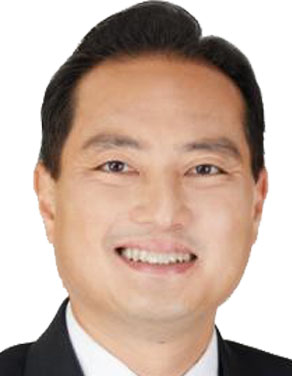
Mr Tan Kiat How was elected a Member of Parliament (MP) for the East Coast Group Representation Constituency (GRC) during the General Elections held in July 2020.
Mr Tan is the Senior Minister of State for National Development and for Communications and Information. Mr Tan is also Chairman of REACH, the lead agency in facilitating whole-of-government efforts to engage and connect with Singaporeans on national and social issues close to their hearts. Mr Tan had also previously served in the Prime Minister’s Office as Minister of State.
Prior to entering politics, Mr Tan spent close to 20 years in the public service. He began his career in the public service as an IT consultant in the Ministry of Education, under a National Computer Board scholarship. He held several appointments in the Infocomm Development Authority of Singapore, before moving to the Ministry of Finance to head its economic programmes department. Mr Tan started the Pioneer Generation Office, which is now known as the Silver Generation Office. Under his leadership, the Pioneer Generation Office mobilised 3,000 volunteers to reach out to almost 500,000 seniors within two years.
Mr Tan subsequently took on leadership roles as Deputy Secretary in the Ministry of Communications and Information (MCI), and later Chief Executive Officer of the Infocomm and Media Development Authority (IMDA).
As a computer engineer by training, Mr Tan has a passion for using technology to enhance the lives of Singaporeans. He led the shaping of the national cybersecurity masterplan and championed a more digital economy and society, including the ethical use of Artificial Intelligence, rollout of 5G mobile networks, and launch of the SG Digital Ambassadors Programme. He helped to develop the Intelligent Nation 2015 blueprint and drove the implementation of the nationwide fibre-to-the-home infrastructure.
Mr Tan graduated summa cum laude from the University of Illinois at Urbana- Champaign with Bachelor’s degrees in Economics and Computer Engineering in 2001. He also holds a Master’s degree in Management Science & Engineering from Stanford University.
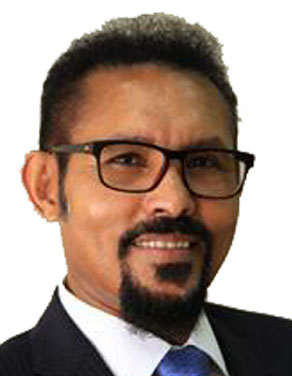
Arkebe Oqubay, PhD, is a Senior Minister and Special Adviser to the Prime Minister of Ethiopia and has been at the centre of policymaking for over twenty-five years. He is the former Mayor of Addis Ababa and winner of the Best African Mayor of 2006 award for transforming the city. Dr Oqubay is a recipient of the Order of the Rising Sun, Gold and Silver Star, presented by the Emperor of Japan. He has also served as chair and vice-chair on the boards of several leading public corporations, including Ethiopian Airlines, Ethiopian Industrial Parks Development Corporation, and the Ethiopian Railway Corporation. He was also the founding chancellor of Addis Ababa Science and Technology University, and currently holds several professorial and research fellowship positions in leading universities and research institutions across the world.
Dr Arkebe is Professor of Practice at the University of Johannesburg (South Africa), a Visiting Professor at Sciences Po (Paris) and Nanyang Technological University (Singapore), and a Distinguished Visiting Professor at Fudan University (Shanghai). He is a UNU-WIDER Honorary Research Fellow, a Distinguished Fellow at the London-based think-tank, the Overseas Development Institute (ODI), and a Research Associate at the Centre of African Studies in the University of London. He is the founder and chair of Policy Research Dialogue for Africa (http://www.prdafrica.org), an initiative that promotes the economic transformation, sustainable development, and economic governance of developing countries. He holds a PhD in development studies from SOAS, University of London.
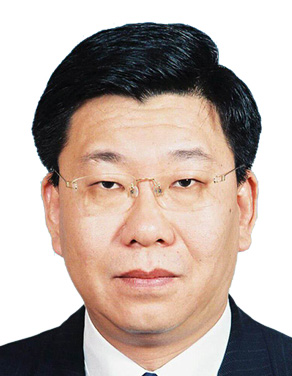
Dr Han is one of the leading figures in China’s public diplomacy. He graduated from Peking University with a PhD and once engaged in postdoctoral research at Harvard University. He was a Member of the 10th, 11th, 12th and 13th CPPCC National Committee and served as the Deputy Director of the Foreign Affairs Committee of the CPPCC for three consecutive terms since 2008. Dr Han is the Vice Chairman of the European and American Student Association and the Chairman of Southeast Asia and South Asia Branch, the Vice Chairman of the China Scholarship Development Foundation, and he is the Founding President of Chahar Society. Dr Han is a Lien Fellow and a recipient of the Outstanding Alumni Award of Nanyang Technological University.
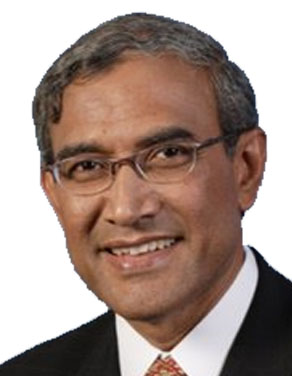
Zainul Abidin Rasheed has had a fulfilling career of more than 45 years in government, international diplomacy and journalism, while continuing to serve in the corporate sector and in voluntary and charitable organisations.
Beginning in 1971 as Research Editor of the Asia Research Bulletin and Editor of The Singapore Business and culminating as Editor of Berita Harian and The Sunday Times, Zainul learnt lots about life and reality in Singapore, the region of South East Asia and the world at large. He was also the Associate Editor of The Straits Times responsible for the establishment of the ASEAN Desk reaching out to understand Singapore's important neighbours.
Zainul had served numerous important Singapore institutions, agencies, councils and civic organizations, including as President of the Islamic Religious Council (MUIS); CEO of the Council for the Development of the Malay/Muslim Community; Chairman of the Malay Heritage Foundation; Executive Secretary of the Singapore Port Workers' Union; a Member of the BOD of the Port of Singapore Authority; a member of the National University of Singapore Council and the Council for Security Co-operation in the Asia Pacific.
Zainul currently serves as Ambassador to Kuwait (Non-Resident). He was the former Senior Minister of State for Foreign Affairs and served as a Member of Parliament from 1997-2011.
Zainul is currently a member of the Board of Directors of MediaCorp Pte Ltd. He is also serving as Non-Executive Independent Deputy Chairman of the OM Holdings Limited Board, a Singapore manganese mining, smelting and trading company listed on the Australian Stock Exchange.
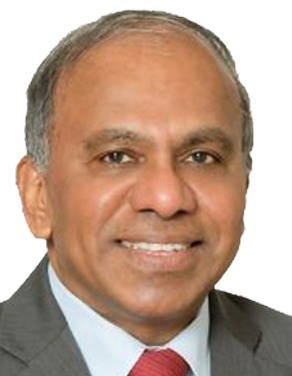
Born in India, Prof Suresh graduated from high school at 15 and received his Bachelor degree (First Class) with distinction in technology from the Indian Institute of Technology (IIT) in Madras. He received a master's degree from Iowa State University and went on to complete his doctorate in mechanical engineering from MIT in just two years. Following postdoctoral research at the University of California, Berkeley, and the Lawrence Berkeley National Laboratory, he joined the faculty of engineering at Brown University in 1983. Prof Suresh returned to MIT in 1993 as the R.P. Simmons Professor and served as Head of Department of Materials Science and Engineering from 2000 to 2006. He was Dean of Engineering at MIT from 2007 to 2010. Prof Suresh was appointed by then-US President Barack Obama in 2010 to lead NSF and was unanimously confirmed by the US Senate. He served as President of Carnegie Mellon University from 2013 to 2017.
Prof Suresh holds the distinction of being the only university president elected to all three US national academies of Sciences, Engineering and Medicine, and is one of the few elected foreign members of the Chinese Academy of Sciences. He is an elected member of 15 science and/or engineering academies based in the US, China, France, India, Sweden, Germany, Italy and Spain. He is a recipient of 12 honorary doctorates from universities around the world including Zhejiang University, China; Ecole Polytechnique Federale de Lausanne (EPFL), Switzerland; Royal Institute of Technology, Sweden; Warwick University, UK; St. Petersburg Polytechnic University, Russia; Dartmouth College, USA, and his alma mater, the Indian Institute of Technology, Madras. In 2011, Prof Suresh was awarded the Padma Shri, one of the highest civilian honours, by the President of India.
He is the author or co-author of more than 250 research articles in international journals, co-editor of five books, and co-inventor on 25 US and international patent applications. He has written three books and among them, Fatigue of Materials and Thin Film Materials have been translated into Chinese and are used as textbooks for postgraduate students.
Prof Suresh is one of the few elected foreign members in the Chinese Academy of Sciences. He was a member of an advisory group to the Governor of Guangdong Province from 2014 to2016, for technology and industry matters. His connections with China go back some 25 years when his book Fatigue of Materials was first translated into Chinese, and he has collaborated in research with various Chinese scientists. Among them was a highly-cited paper on nano-twinned materials published in Science.
Prof Suresh has taught many Chinese students and scholars in the past 30 years. One of his first students, when he was a young assistant professor at Brown University in 1984, was Yang Wei, who went on to become President of Zhejiang University where Prof Suresh received an honorary degree in 2013 - a memorable occasion for him. Prof Yang is now the president of National Natural Sciences Foundation, China's top science agency. Prof Suresh was made an honorary professor at Xi'an Jiaotong University in 2013 and at the University of Science and Technology in 2014.
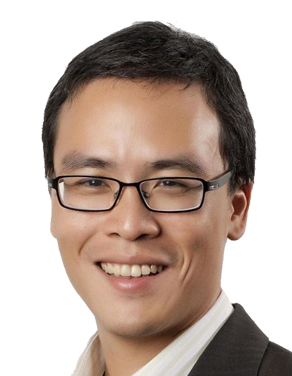
Mr Laurence Lien is the Co-Founder and CEO of the Asia Philanthropy Circle (APC), Chairman of Lien Foundation the renowned family foundation established in 1980 and Board Member of the Lien Centre for Social Innovation at the Singapore Management University. Mr Lien is also the founder and CEO of Community Foundation of Singapore. He ever served as CEO of the National Volunteer & Philanthropy Centre in Singapore. Prior to his work in the non-profit sector, Mr Lien served in the Singapore Administrative Service, which forms the top echelon of public service leaders in Singapore. He holds degrees from Oxford University, National University of Singapore and Kennedy School of Government at Harvard University. He was awarded the Eisenhower Fellowship and a Nominated Member of Parliament in Singapore.
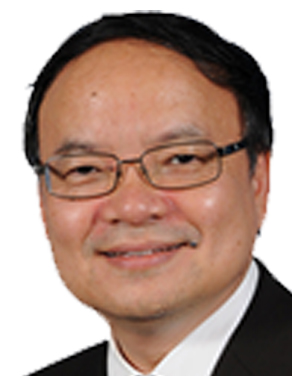
Professor Liu Hong is Associate Vice President, International (Liasion & Coordination), Director of Nanyang Centre for Public Administration and Executive Director of the Lien Ying Chow Legacy Fellowship. He is the Tan Lark Sye Chair Professor of Public Policy and Global Affairs, School of Social Sciences at Nanyang Technological University (NTU), where he also serves as Director of the Nanyang Centre for Public Administration. Prior to joining NTU in 2010, he taught at the University of Manchester as the Founding Director of the Centre for Chinese Studies and Chair Professor of East Asian Studies. Apart from being the chief editor of Public Governance in Asia (Routledge) and Journal of Chinese Overseas, Professor Liu has published more than 20 books and about 100 articles in academic journals. His most recent publications include The Political Economy of Transnational Governance: China and Southeast Asia in the 21st Century (2022); Research Handbook on the Belt and Road Initiative (co-edited with Joseph Liow and Gong Xue, 2021); and The Political Economy of Regionalism, Trade, and Infrastructure (co-edited with Tan Kong Yam and Lim Guanie, 2021).
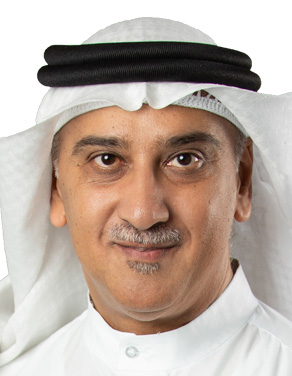
RA'ED M. BENSHAMS is the founding DIRECTOR GENERAL of the INSTITUTE OF PUBLIC ADMINISTRATION in Bahrain (BIPA). In close leadership with the family of BIPA, built up BIPA into a partner of choice to develop the government of the Kingdom of Bahrain into high performance with sustainable development. BIPA has developed a wide range of capacity building programs and projects for all strata of public servants. It has also developed key signatory services in consulting and introduced new models and methodologies that contributed create high return of investment for the country.
In 2013 during the llAS/IASIA 2013 Congress, launched a research initiative in the public service as a think tank in the region. DR. BENSHAMS is the president of the MIDDLE EAST AND NORTH AFRICA PUBLIC ADMINISTRATION RESEARCH (MENAPAR) NETWORK since its establishment in 2014 and was reelected in 2018 after the network was established as an international NGO registered in Belgium with its permanent secretariat in Bahrain. He is also the President of the International Institute of Administrative Sciences (llAS) since 2019.
DR. BENSHAMS was a member of the RECRUITMENT OF HIGH OFFICIALS IN THE PUBLIC SECTOR COMMITIEE and CHIEF of its TASK FORCE, which was also responsible to nominate & evaluate government employees and officials for the Royal Medals. Additionally, he led several task forces managing the parliamentary and municipality elections held in Bahrain since 2002.
He was decorated with the MEDAL OF HIGHEST LEVEL OF COMPETENCE by HM THE KING for his achievements. He holds a PHD in strategic management & organization behavior from Bradford University, an MSc in Management Information Systems from Leeds University and BSc from King Saud University.
He also occupied key positions in the private and public sector prior to joining BIPA. He was ASSISTANT GENERAL SECRETARY for HR, Finance and Admin Affairs at the Ministry of Cabinet Affairs, DIRECTOR OF STATISTICS at the Central Informatics Organization (iGA) and GENERAL MANAGER of a systems integration company. He is a member of the board in several national and international associations and published chapters in two edited books with numerous conference papers.
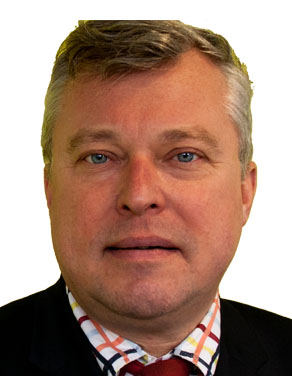
Dr Geert Bouckaert is Professor at the KU Leuven University (Belgium), Honorary Professor at the University College London (UK), and visiting professor at Potsdam University (Germany). He is currently the Chair of the OECD Network of Schools of Government. Dr Bouckaert is formerly the President of EGPA (European Group for Public Administration), IIAS (International Institute of Administrative Sciences), and the Flemish Governmental Commission for the Efficiency and Effectiveness of the Public Sector.
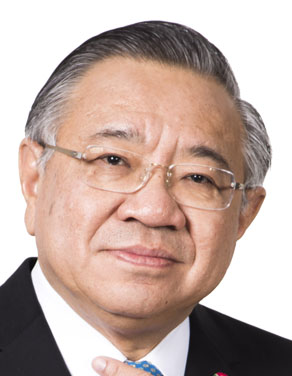
Professor Woothisarn Tanchai is the Secretary General of the King Prajadhipok’s Institute, an academic institution under the supervision of the House of Representatives. Before being the Secretary General, he served a professor at the Department of Community Development Faculty of Social Administration, Thammasat University. He holds Master’s degrees in Public Administration from the National Institute of Development Administration, Bangkok, and in Policy Science (International Program) from Saitama University, Japan. Professor Tanchai has been appointed to serve on numerous public committees, including the National Strategy Development Committee on Balancing and Developing Public Management Systems (2017-2019), Extraordinary Commission to Consider and Study Rules and Methods for Amending the Constitution of the Kingdom of Thailand 2017 (2019-Present), and the Socio-Economic Impact Advisory Team in the COVID-19 Epidemic Management Centre (2020-August).
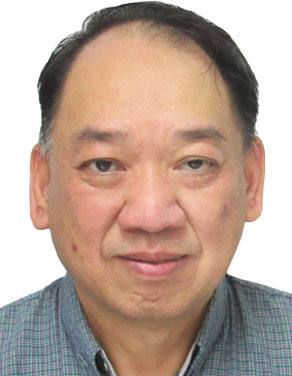
Dr Tan Boon Seng is passionate in teaching microeconomics and its application -- such as cost benefit analysis and personnel economics -- at the Nanyang Centre of Public Administration. Unsurprisingly, his research applies economic reasoning to the analysis of business and policy issues, and is published in peer-reviewed and professional journals. Dr Tan obtained his PhD (in business), MBA and BSc (Pharmacy) from the National University of Singapore. Many people whom he encounters while working for the Hong Kong Polytechnic University, University of Chicago, Lee Kuan Yew School of Public Policy and the Institute of Singapore Chartered Accountants left long lasting influence on his teaching and research.
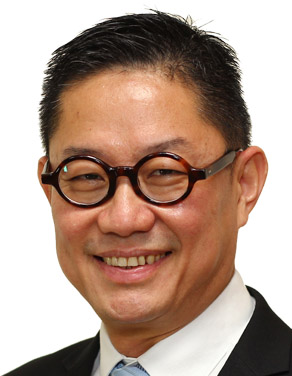
Mr Lawrence Pek is the Secretary-General of the Singapore Manufacturing Federation, a leading trade association which serves the manufacturing community in Singapore since 1932.
Mr Pek possesses the credentials of a successful entrepreneur and a unique work experience in an MNC spanning different countries and regions. Starting with Sony International Singapore Ltd in 1995, Mr Pek has since undertaken management appointments for the MNC in places such as Singapore, the Middle East, China, Hong Kong and India over a span of close to 15 years. After leaving Sony, Mr Pek set up Bolin Technologies Ltd, a company in Shenzhen China, involved in the design and manufacture of high end video conferencing and security cameras. To date, operating out of its factory in China, Bolin Technologies Ltd supplies its products to markets in China, Europe and the USA.
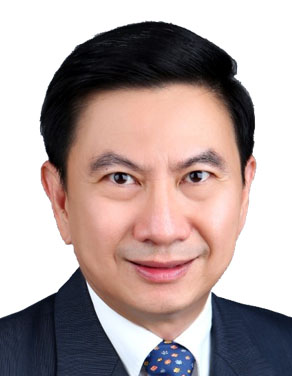
Philip is a corporate executive-turned-entrepreneur building sustainability and ESG-focused ecosystems for a wide variety of companies through advisory, impact investments, and business model innovation.
He has over 33+ years of general management experience across the energy, healthcare, and airline industries. An experienced multi-functional and verticals leader he has broad-based know-how in Strategic Marketing and Branding, Digital Transformation and eCommerce, M&As, Corporate Governance and Sustainability.
A Singaporean, he held increasing responsibilities with Chevron Corporation from March 1998 to October 2020 based in Singapore, London, Hong Kong, and Shanghai across M&As, corporate business development, strategy, and sustainability. He was also a start-up founder for Chevron’s digital venture in China from 2015 to 2019 leveraging eCommerce and technology.
In the course of his career, Philip has led the origination and evaluation of investment opportunities, secured strategic partnerships, directed deal teams in due diligence, financial and commercial analysis, complex negotiations, and contracting. He was the Executive Chairman of Chevron Hong Kong Ltd and held regional P&L and marketing roles for Johnson & Johnson and Singapore Airlines earlier in his career.
Philip has a Master’s of International Management from the University of California’s School of Global Policy and Strategy, a Bachelor’s of Political Science and Economics from the National University of Singapore, and is an alumnus of INSEAD and IMD.
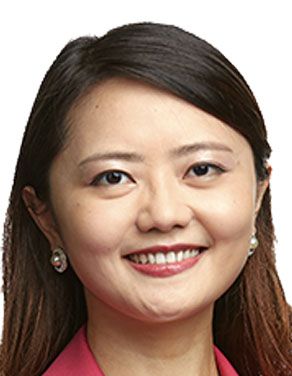
Xue Gong is Assistant Professor and deputy coordinator of Master of Science (International Political Economy) at S. Rajaratnam School of International Studies, Nanyang Technological University, Singapore. Her current research interests include China’s economic diplomacy China-Southeast Asia economic relations, regionalism and governance. She has contributed to peer-reviewed journals such as the World Development, International Affairs, the Pacific Review, Contemporary Southeast Asia, Harvard Asia Quarterly. She has two co-edited books on Belt and Road Initiative. She has also contributed to several book chapters on China’s economic statecraft, China’s corporate social responsibility and Belt and Road Initiative in Southeast Asia. She has contributed various Op-Ed articles such as the South China Morning Post, The Diplomat, and so on.
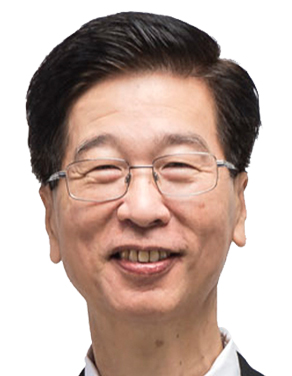
Dr Ang is an Adjunct Professor in Nanyang Technological University and Singapore University of Social Sciences. He specialises in social management, public administration, and leadership.
He is also the Deputy Secretary of MCCY leading the ministry’s efforts in Singapore Cares, the national movement to foster a more caring, compassionate and inclusive society. He was previously appointed as Commissioner of Charities (COC) and Executive Director of the Registry of Co-operative Societies and Mutual Benefit Organisations (RCS).
Prior to these appointments, Dr Ang has served in the Public Service for more than 30 years. In addition to enhancing Singapore’s ability in curbing emerging threats, he forged strategic international partnerships for the Singapore Police Force. Dr Ang also led the Health Promotion Board in championing healthy living as a pervasive lifestyle and social movement during his time as the Chief Executive Officer. As the Chief Executive Director of People’s Association (PA), he transformed PA to a resident-centric organisation, playing an invaluable role in strengthening Singapore’s social fabric.
Dr Ang obtained the degree of Doctor of Philosophy (PhD) from Nanyang Technological University in 2016. He has a Master of Business Studies MBS, 1st Class Hons) from Massey University, and a Master of Science in Management of Technology (MOT) from Massachusetts Institute of Technology. Dr Ang has also attended the Advanced Management Program at Harvard Business School. He is a Fellow Chartered Accountant with the Institute of Singapore Chartered Accountants and a Fellow with the Chartered Secretaries Institute of Singapore. He is currently a Fellow at the Civil Service College.
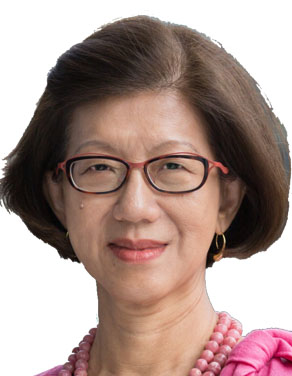
Lian Sim is a Vice Chair of the Task Force on Climate-Related Financial Disclosures (TCFD) and a Member of ISCA’s Sustainability and Climate Change Committee.
She is Special Adviser on Diversity at the Singapore Exchange (SGX) after 10 years as head of regulation and risk management. As regulator, she had charge of listed companies, member brokers and trading surveillance for a fair, orderly and transparent market. Risk management responsibilities covered financial risk of clearing and settlement and oversight of enterprise risk. Before joining the SGX, Lian Sim was for many years at the Monetary Authority of Singapore in various roles including managing foreign reserves, executing exchange rate policy and regulating the capital market.
Lian Sim is also Executive Director of Shared Services for Charities Limited, a charity helping other charities improve governance and risk management.
She graduated in economics from the University of Singapore and obtained a Master’s degree from the London Business School.
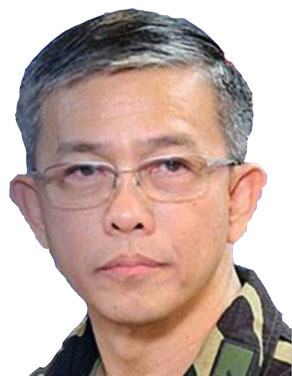
Maj. Gen. Padilla Jr. (Ret) is a graduate of the Philippine Military Academy and joined the Philippine Air Force as his chosen service. He is a military aviator and earned his ratings as a Flight Commander, Test Pilot, and as an Instructor Pilot and has accumulated more than 3,700 flight hours in various aircraft types. He retired from the Service as the Armed Forces of the Philippines Chief of Plans, J5, a position of major responsibility he held from August of 2017 to February 2019. He served with distinction and has been entrusted with numerous major responsibilities throughout his military career.
He joined the private sector shortly after retiring from the Service and presently heads the Office for Corporate Public Policy, Risk, and Sustainability of the Philippine Transmarine Carriers Holdings Corporation (PTCH). He is also the COO of the First Aviation Academy Incorporated (FAAi), a joint venture undertaking of PTCH and Macro Asia Corporation. He also serves as board member and director in various boards across numerous business enterprises of the group and other sectors.
Maj. Gen. Padilla Jr (Ret) holds a Masters Degree in Development Management from the Asian Institute of Management and is a recipient of numerous awards and commendations from the military and civilian sector alike. This includes the Distinguished Aviation Cross, Metro Bank’s Ten Outstanding Pilipino Soldiers (TOPS) for 2007, Presidential Legion of Honor, three Distinguished Service Stars, two Silver Wing Medals, and numerous combat awards.

Dr. Chu Tien Dat is Deputy Director of International Cooperation Department, Vietnam Cooperative Alliance, he is also a Lecturer for postgraduate students at Hanoi National Economics University. In the field of research, he has collaborated with many domestic and foreign agencies and organizations to develop research reports, policy consultations, exchange discussions, in which international organizations include: World Bank, International Labor Organization, International Co-operative Alliance, UNDP, Rosa Luxamburb Research Institute of Germany, domestic agencies include: Central Economic Commission, Ministry of Industry and Trade, Ministry of Planning and Investment, Ministry of Labour, Invalids and Social Affairs, Economic Committee of the National Assembly. The main focus is on those reports on: international economic integration, international economy, labor, cooperatives, collective economy, green economy, circular economy, digital economy.
From 2020 to 2021, he was an officer at the Central Economic Commission, the agency that advises and develops strategies in the socio-economic field of Vietnam. From 2014 to 2020, he was the leader of a state-owned enterprise in Vietnam, operating in the field of telecommunications and television research and development.
Dr. Chu Tien Dat holds a PhD in Economics in 2014. Up to now, he has had more than 30 scientific research works published in scientific journals. Many studies, reports, policy proposals by him and the research team have been submitted to the National Assembly and the Government to build policy, institutions such as: research on amendments to the Law on Cooperatives of Vietnam, Research on improving the efficiency of the cooperative sector when Vietnam joins the new generation Free Trade Agreements, Research on digital transformation, recovery and development of cooperative and rural areas in Vietnam, Research on green, sustainable tourism development.
For his contributions, Dr. Chu Tien Dat has received many certificates of merit such as: Certificate of Merit from the Prime Minister, Certificate of Merit from the Minister of Information and Communications, Certificate of Merit for the top 10 typical young entrepreneurs.
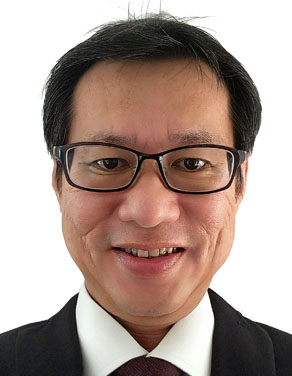
Chua Chim Kang is the Head & Chief Editor of Chinese News and Current Affairs. Presently, Chim Kang serves as Chairman of the Promote Mandarin Council, and as a Board member of the Singapore Centre for Chinese Language and Lee Kuan Yew Fund of Bilingualism.
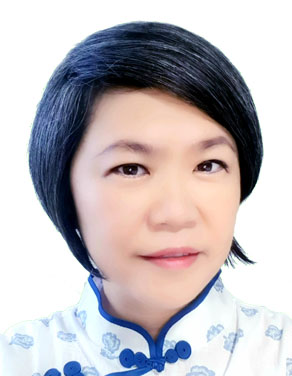
A senior advisor, mentor and confidante to C-suites., Penny pioneered movements and entrepreneurship across the media, academic, private, public and people sectors. A global connector and innovator, she is passionate about technology for Good and mindful leadership. She currently advises multiple technology and innovation organisations across the globe.
From 2001-2015, as an elected Singapore Member of Parliament, she helped built the first eco-town in the tropics - the Punggol Digital District, sat on national committees covering the Parliament Estimates Committee, Ministries of finance/trade and industry, education/ national development/ environment & water resources/ information/ arts, culture, community and youth. She chaired the Government Parliamentary Committee for the Ministry of Communications, Information and the Arts. She sits on various global boards – Asia Society Global Council, Interlink Group, Operation Hope, amongst many others.
A successful wealth manager, she founded the Social Innovation Park, co-created SEA and raiSE – a national platform responsible for the social enterprise sector development work. She strategized and implemented media programs, co-created television programs, forums and businesses that impacted numerous social entrepreneurs and people for a better world.
She had oversight of 3 universities including the board of Yale World Fellows and published articles and books, including the ‘Top 50 Social Innovations Changing Our World” and ‘Practising Sustainability' published in New York, which won the Springer Nautilus Silver award.
Penny is a frequent speaker on many well known platforms like the World Economic Forum (Davos), Asia Society, International Parliamentary Union, Commonwealth Parliamentary Association, etc. Honoured with many prestigious global awards- founding member of the World Economic Forum’s New Asian Leaders and Young Global Leaders, the Global Shapers Community, Asia 21 Young Leaders, Aspen Ideas Festival Scholar, Yale World Fellow & Scholar, INSEAD Scholar, NTU-Lien Legacy Fellow, Salzburg Global Fellow and an alumnus of NUS, Harvard, Yale, and Tsinghua University.
She is an avid explorer who has traversed more than 90 countries, experiencing people and culture alongside unique landscapes across the globe.
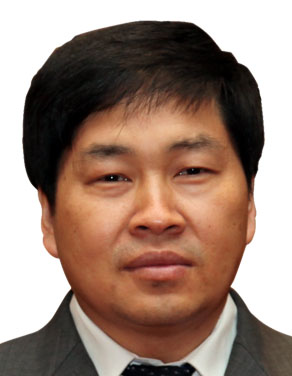
Dr Zhang Yongjun graduated from Renmin University of China with a Doctoral Degree in Western Economics. In 2016, he was awarded as Lien Fellow of Nanyang Technological University in Singapore.
He has worked in the State Information Center for many years, and successively served as the Deputy Director of the Finance and Finance Division of the Economic Forecasting Department, the Director of the Macroeconomic Division, and the Director of the World Economic Division. During the period of 2001-2003, he worked in Xianyang City, Shaanxi Province for training, and successively served as the Deputy Director of the Municipal Development Planning Committee and the assistant to the mayor.
Since 2009, he has been working in the China Center for International Economic Exchanges, mainly engaged in research on macroeconomics and international economy. He has served as a researcher and deputy director of the Economic Research Department (presiding over the work). Currently, he serves as Deputy Chief Economist and academic committee member. From 2021, he become a member of the Academic Committee of the National Development and Reform Commission.
During his work, he published a large number of articles on macroeconomic situation analysis and policy recommendations, roughly estimated to be more than 200 articles. Participated in the planning, topic design, and drafting of conference documents for large, medium and small meetings for many times. As a speaker at the China Economic Annual Conference, the Global Think Tank Summit and other events. Many times to CCTV, China People's Broadcasting Station, Phoenix Satellite TV, Shenzhen Satellite TV to comment on the economic situation. As the main negotiator, he received more than 100 foreign guests visiting and exchanging during work.

Dr. Mabel Lu MIAO is the Co-founder and Secretary-General of the Center for China and Globalization (CCG), a leading Chinese non-government think tank ranking in 64th place globally; As the only think tank in China granted “Special Consultative Status” at the United Nations Economic and Social Council (ECOSOC), CCG is also the only non-governmental think tank with the qualification for partnership with Munich Security Conference (MSC) and Paris Peace Forum (PPF). Over the years under the co-leadership of Dr. Miao, CCG has gained wide international recognition and grown into a significant think tank with global impact that promotes China’s globalization process.
Dr. MIAO also serves as Co-founder and Secretary General of Global Young Leaders Dialogue (GYLD) program, Deputy Director General of the Alliance of Global Talent Organizations (AGTO), Secretary General of China Global Talent Society.
Dr. MIAO is an experienced public speaker, having delivered keynote speeches, participated and moderated numerous panels at home and abroad. In 2016, she was met by the King of Belgium at his palace as one of seven representatives of young global leaders from Northeast Asia, has been invited to speak at Doha Forum in 2018 and 2019 and at Paris Peace Forum for four consecutive years. In 2020, she was selected as Young Leader for Munich Security Conference (MSC). In 2021, as the representative of Munich Young Leader, she was invited to post questions to United Nations Secretary-General António Guterres at the Munich Security Conference Special Edition 2021; at the same year she was also appointed as Co-Chairman of Think20 (G20 Summit 2021 Think Tank) Task Force 8. Led by Dr. Miao, GYLD (Global Young Leaders Dialogue) program has aroused wide attention and received positive responses at home and abroad.
Dr. MIAO holds a PhD degree in Modern and Contemporary Chinese Studies from Beijing Normal University. She was also a visiting fellow at New York University and Harvard University, a post-doctoral fellow of the Hong Kong University of Science and Technology (HKUS), and a Lien Fellow at Nanyang Technological University (NTU), Singapore.
+65 6790 6295
Nanyang Centre for Public Administration
Nanyang Technological University
50 Nanyang Avenue, S3.2-B4, Singapore 639798